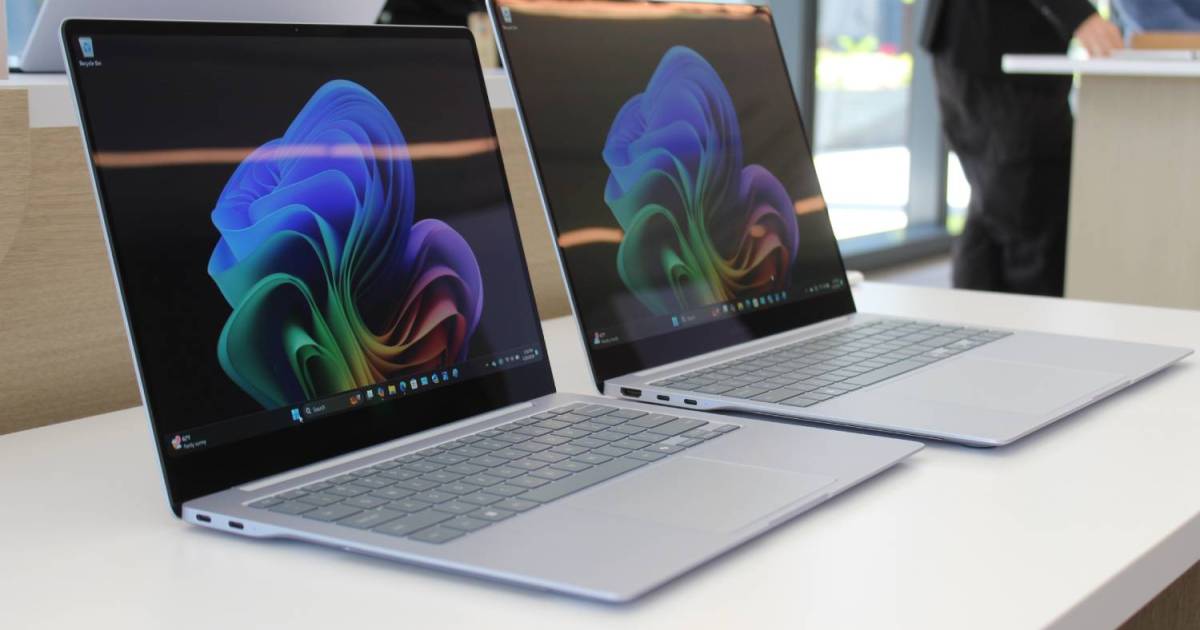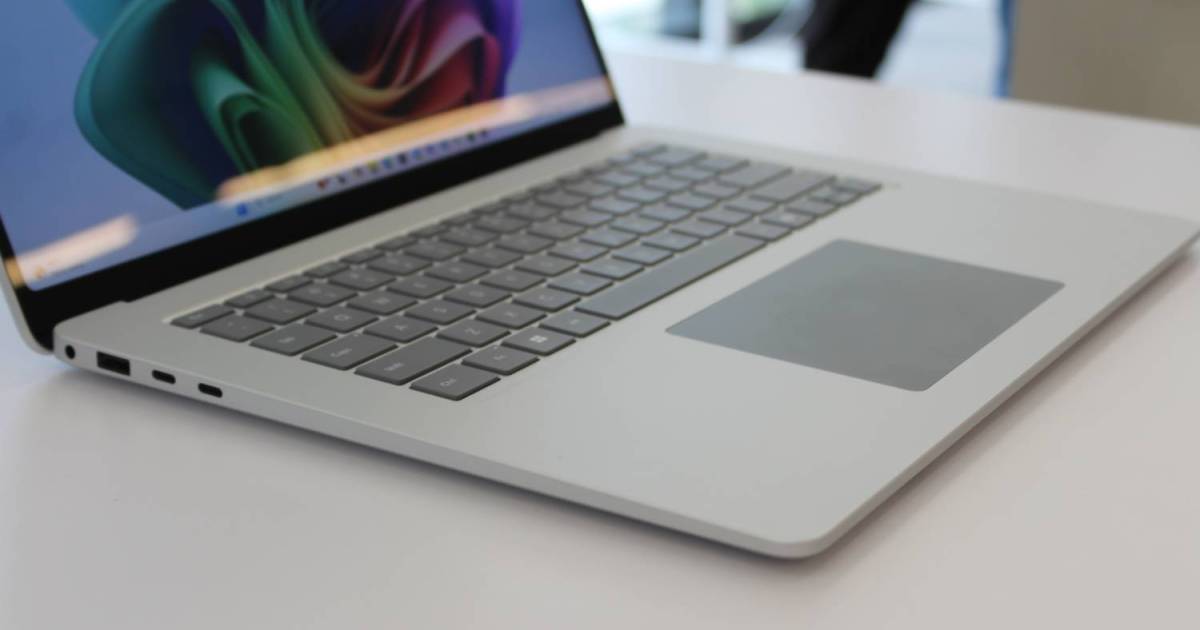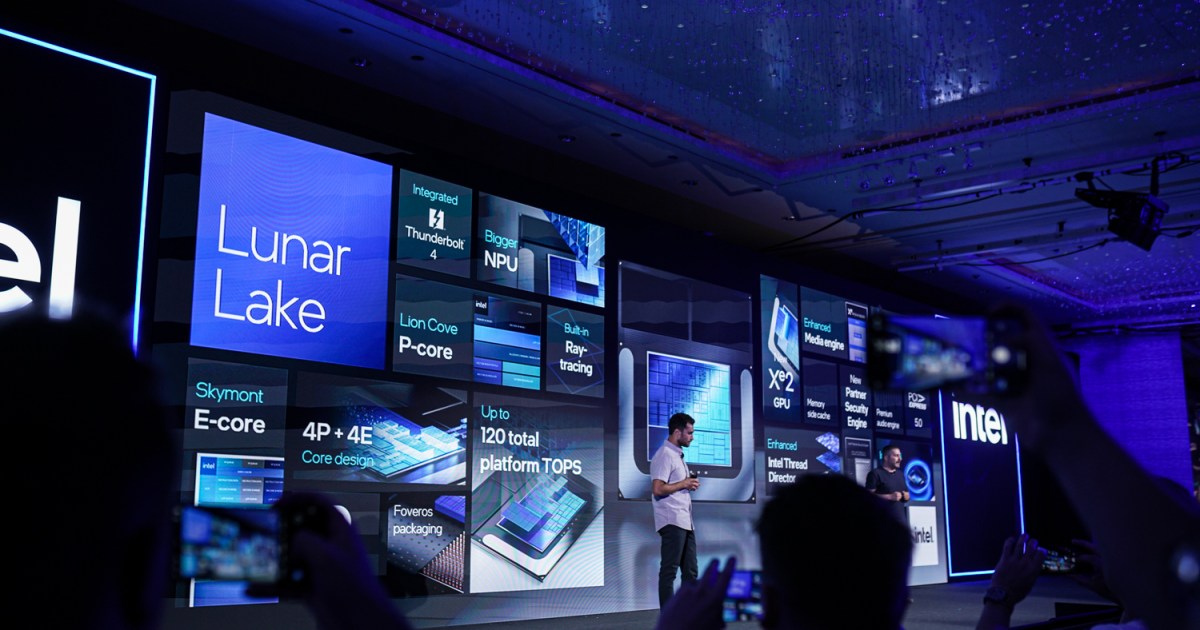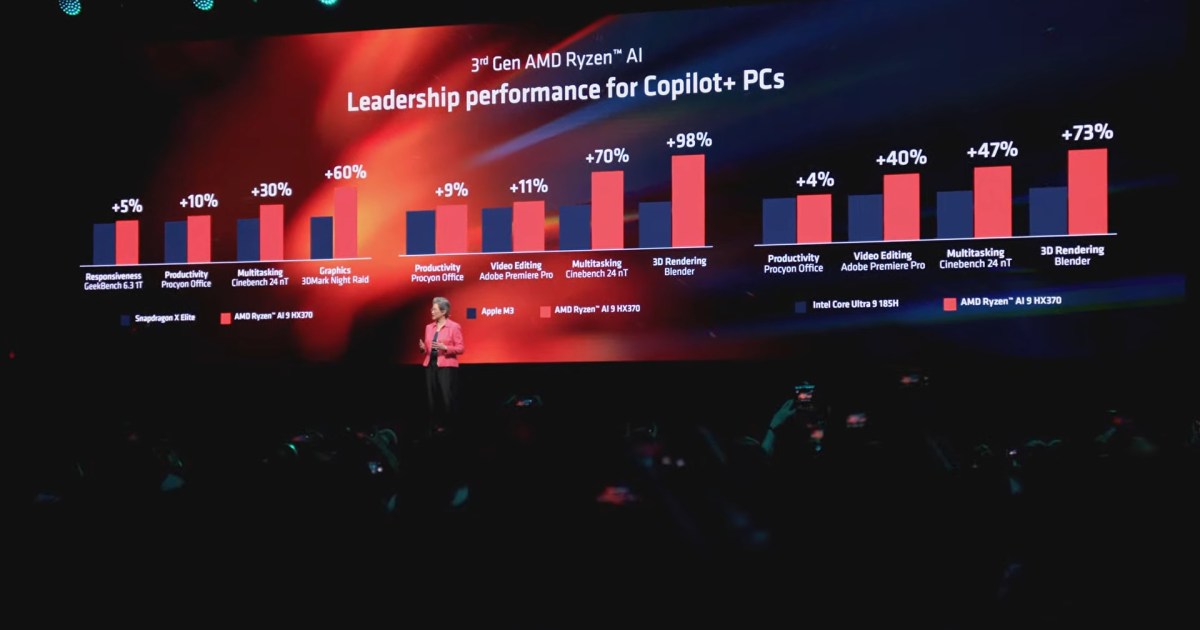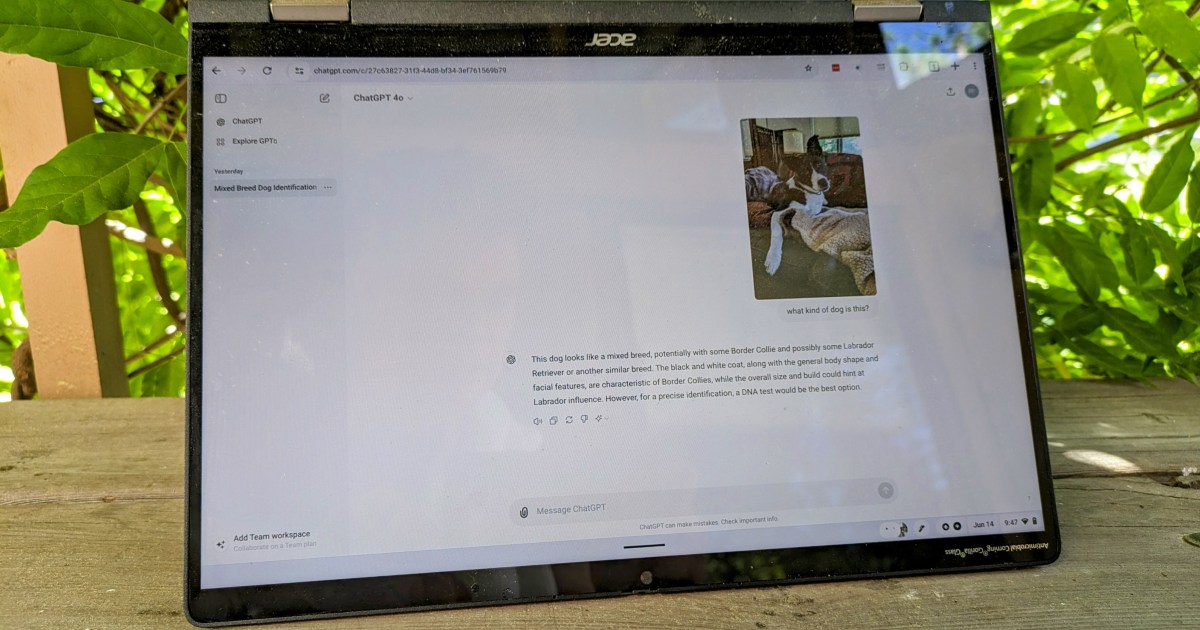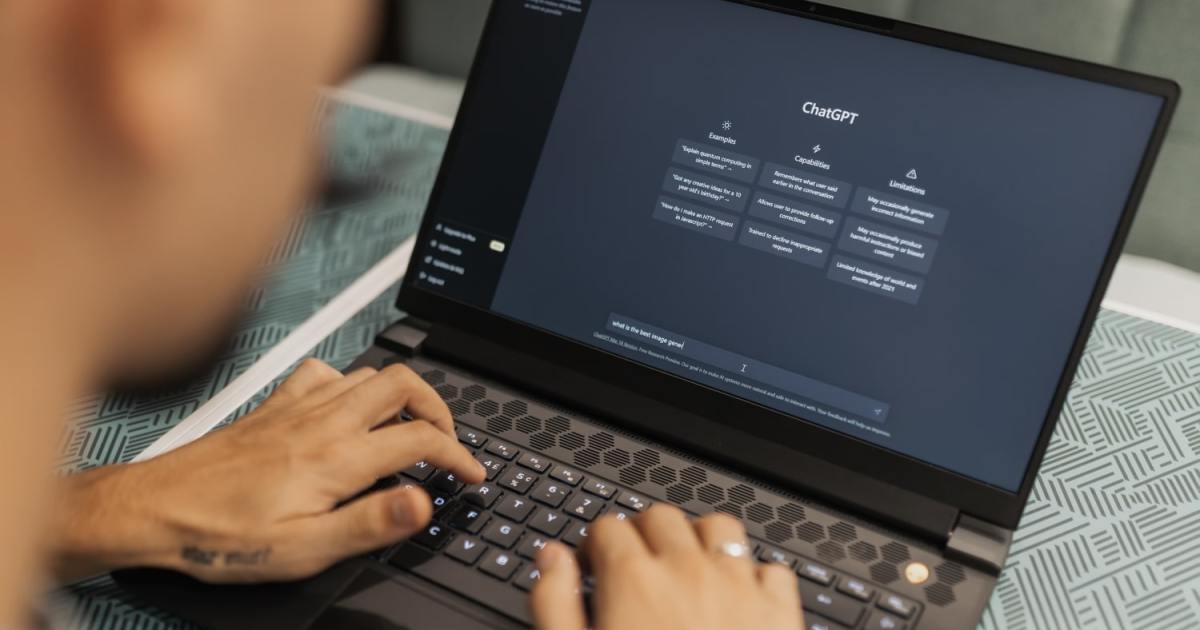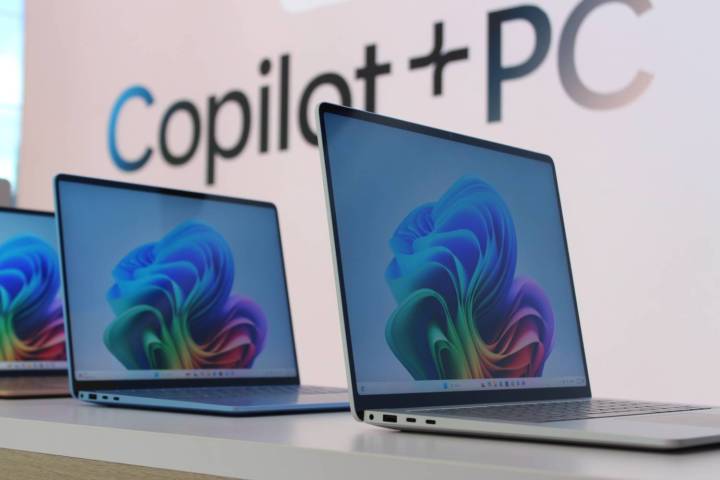 A Surface Laptop in front of a Copilot+ sign.Image: A Surface Laptop displayed prominently in front of a Copilot+ sign.
A Surface Laptop in front of a Copilot+ sign.Image: A Surface Laptop displayed prominently in front of a Copilot+ sign.
Copilot+ PCs mark a new era for Windows, driven by Microsoft’s AI integration and the transition to Arm architecture. While Copilot+ isn’t exclusively tied to Qualcomm’s Arm chips, their current dominance stems from the 40 Tera Operations Per Second (TOPS) NPU performance requirement. This translates to thin, powerful laptops with exceptional battery life, posing a strong challenge to the MacBook Air. While in-depth reviews are pending, here are some of the most promising Copilot+ laptops we’ve encountered.
Microsoft Surface Laptop
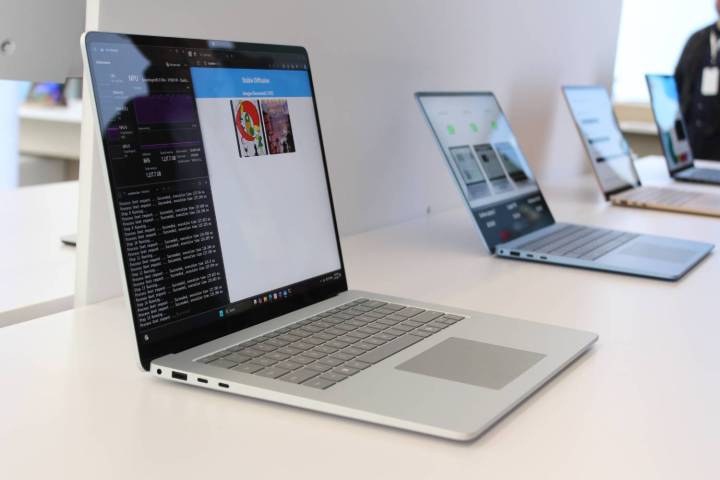 The Surface Laptop running local AI models.Image: The Surface Laptop actively processing local AI models.
The Surface Laptop running local AI models.Image: The Surface Laptop actively processing local AI models.
The Surface Laptop has always aimed to rival the MacBook Air, boasting a sleek design and thin profile. Past iterations, however, faced performance and battery life limitations. The latest Snapdragon X-powered Copilot+ Surface Laptop overcomes these hurdles, finally realizing its full potential. Microsoft has also refreshed the aesthetics with thinner bezels, a larger haptic trackpad, and new color options. This makes the new Surface Laptop a compelling Copilot+ device. As Microsoft’s own Copilot+ flagship, starting at $999, it offers excellent value.
Worth mentioning is the new Surface Pro. This 2-in-1, while unique, could inspire a new wave of Windows tablets and detachables thanks to the performance and battery life improvements. The stunning OLED screen is a particularly attractive feature.
Samsung Galaxy Book4 Edge
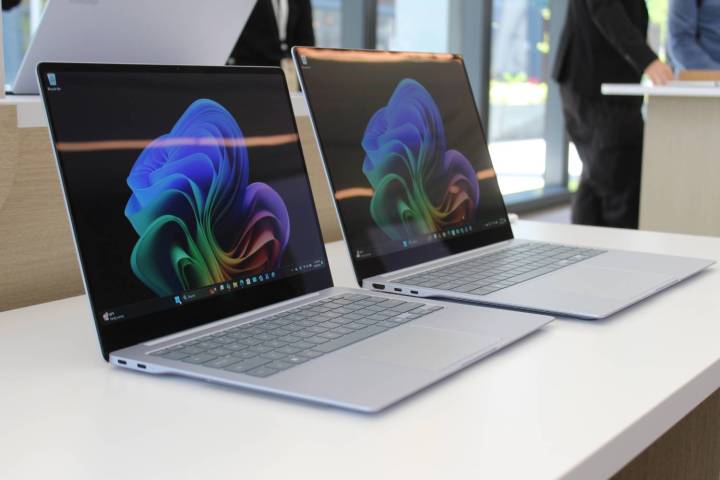 The two sizes of the Galaxy Book4 Edge on a table.Image: The 14-inch and 16-inch Galaxy Book4 Edge models displayed side-by-side.
The two sizes of the Galaxy Book4 Edge on a table.Image: The 14-inch and 16-inch Galaxy Book4 Edge models displayed side-by-side.
Samsung continues its tradition of ultra-thin laptops with two Copilot+ models even thinner than the MacBook Air at 0.43 inches. This is achieved through the efficient Arm architecture without compromising performance. Available in 14-inch and 16-inch AMOLED screen options, the 16-inch model boasts additional features like an HDMI port, a larger touchpad, and greater storage configurations. Samsung’s new inter-device connectivity allows Copilot+ on the PC to interact directly with Phone Link, enabling tasks on Samsung phones or tablets. While some design choices, like the large bottom bezel and number pad (16-inch model), might not appeal to everyone, the Galaxy Book4 Edge showcases the potential for incredibly thin devices. The 14-inch model starts at $1,350, while the 16-inch begins at $1,450.
Dell XPS 13 (9345)
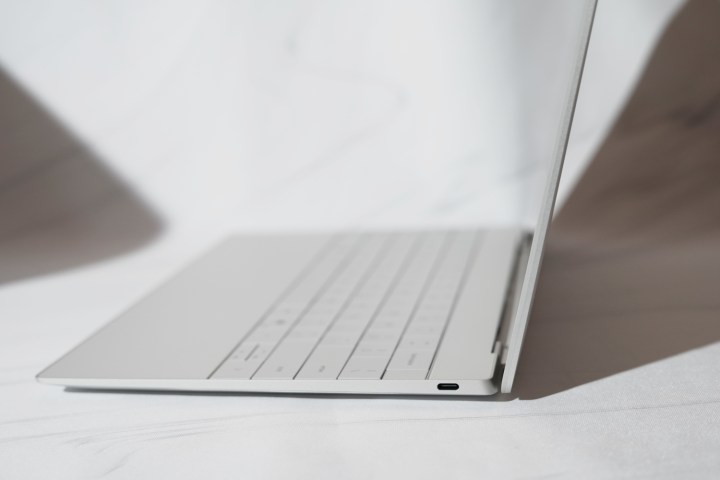 The side profile of the Dell XPS 13.Image: A side view showcasing the slim profile of the Dell XPS 13.
The side profile of the Dell XPS 13.Image: A side view showcasing the slim profile of the Dell XPS 13.
The Copilot+ XPS 13 retains the design of the Intel-based 9340 model. While a redesign might have been welcomed, the current XPS 13 already features a cutting-edge, albeit controversial, design. Its seamless glass trackpad blends into the palm rests, creating a minimalist look. The capacitive touch buttons replacing the function keys and the absence of a headphone jack are contentious design choices. However, with the Snapdragon X Elite, the XPS 13’s performance and battery life should rival the M3 MacBook Air. The XPS 13 9345 signifies the arrival of premium Windows laptops on Arm, demonstrating confidence in these new chips. Priced only $50 higher than its Intel counterpart, the performance and battery gains make the Arm version a compelling choice. The Dell XPS 13, equipped with a Snapdragon X Elite, 16GB of RAM, and 512GB of storage, starts at $1,300.
HP OmniBook X 14
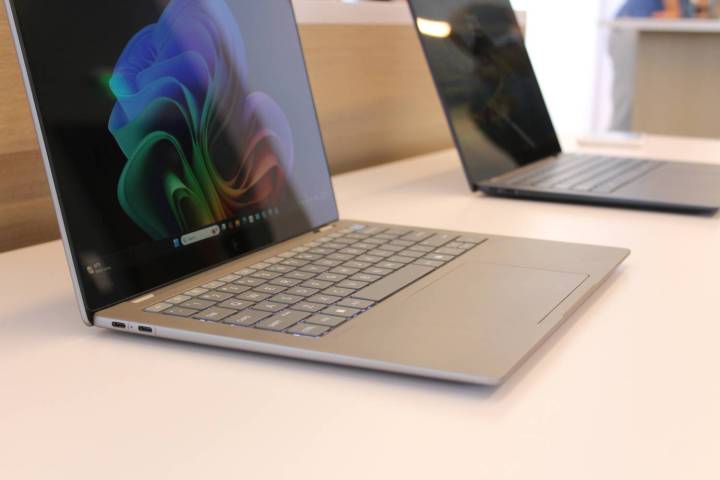 The HP OmniBook X 14 on a white table.Image: The HP OmniBook X 14 displayed on a white surface.
The HP OmniBook X 14 on a white table.Image: The HP OmniBook X 14 displayed on a white surface.
HP has revamped its laptop lineup, replacing Spectre and Envy with the Omni brand. The flagship OmniBook X 14, a Copilot+ PC, sports a distinct new look, reminiscent of the MacBook aesthetic, yet with its own unique vibe, especially in the all-white model. The thin chassis and rounded edges enhance its appeal. The keyboard design and colored accents on the function keys differentiate it from both previous HP laptops and other Copilot+ devices. The OmniBook X 14, with a Snapdragon X Elite, 16GB of RAM, and 512GB of storage, starts at $1,150.
Lenovo Yoga Slim 7x
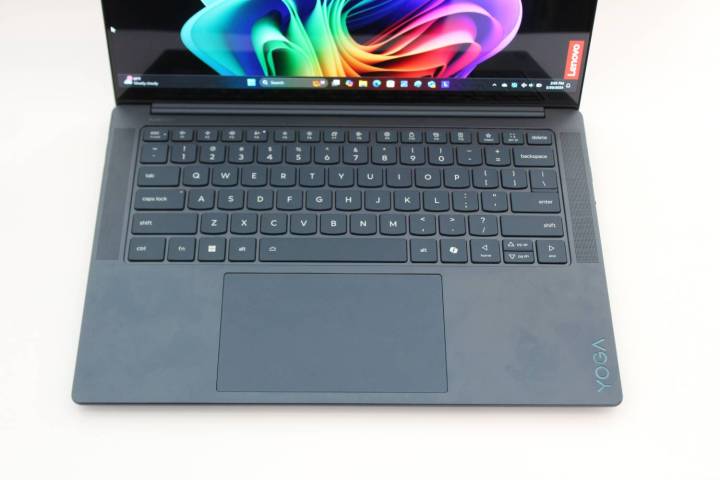 The keyboard on the Lenovo Yoga Slim 7x.Image: A close-up view of the Lenovo Yoga Slim 7x keyboard.
The keyboard on the Lenovo Yoga Slim 7x.Image: A close-up view of the Lenovo Yoga Slim 7x keyboard.
The Lenovo Yoga Slim 7x exemplifies the thin and light potential of efficient CPUs. At 0.5 inches thick and under 3 pounds, it features a 14.5-inch OLED screen, a quad-speaker system with upward-firing tweeters, and a large touchpad. Resembling other Lenovo Yoga laptops, the Slim 7x is smaller, more powerful, and boasts significantly longer battery life. Beyond the AI features, this represents a significant upgrade for this class of Windows laptops. This is just the beginning, and with continued success, we can expect even more innovative designs leveraging the power of these efficient chips.



